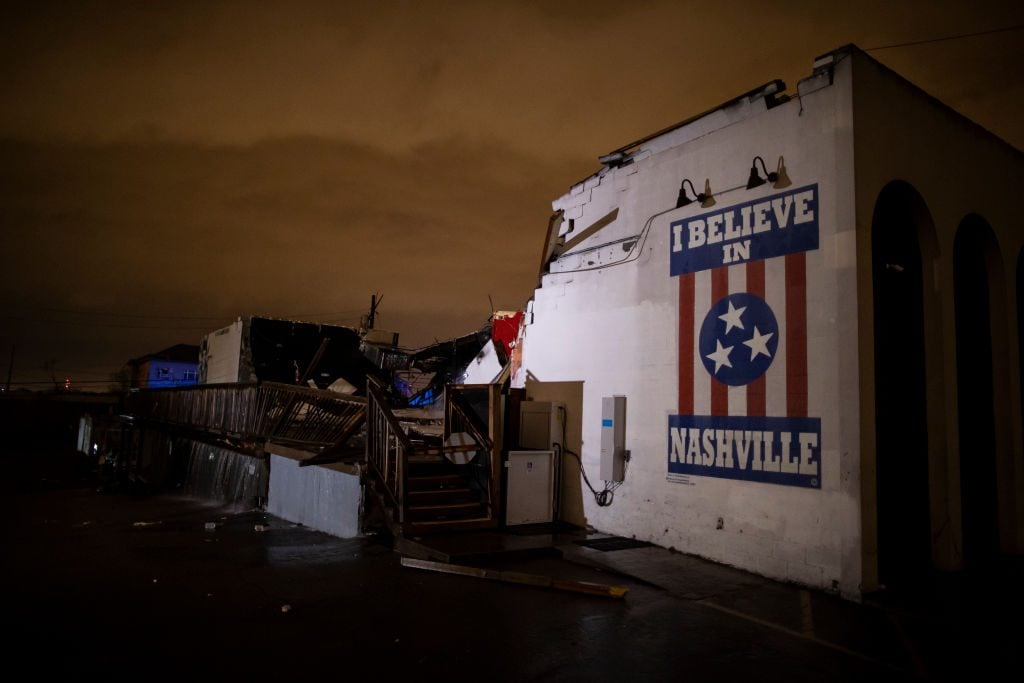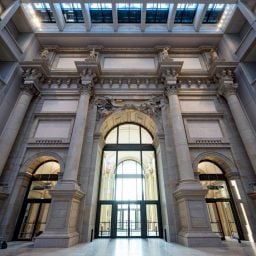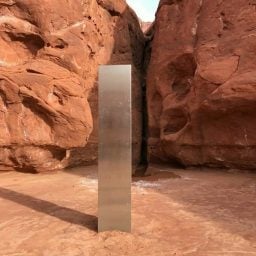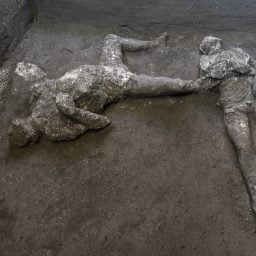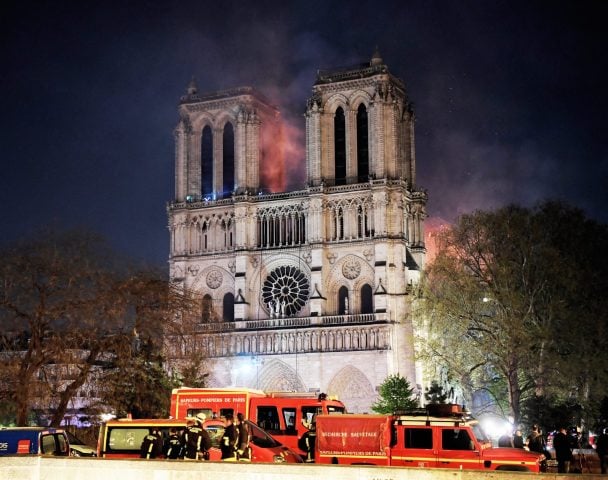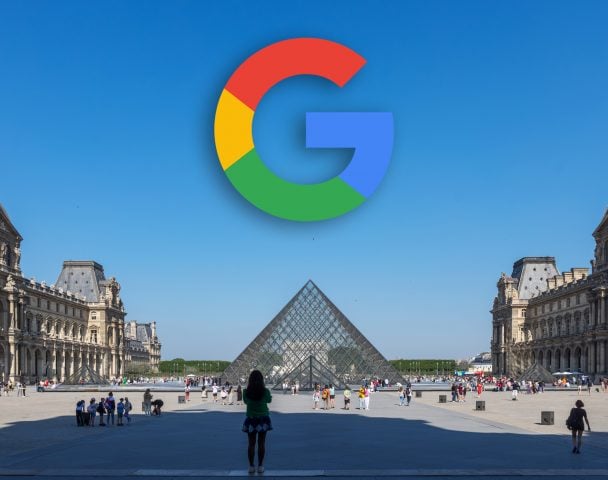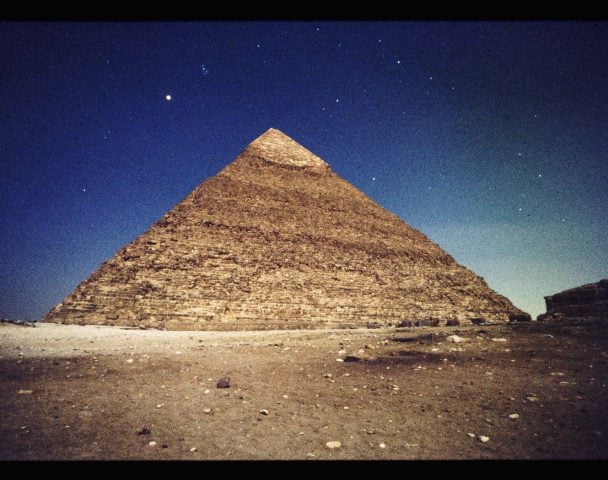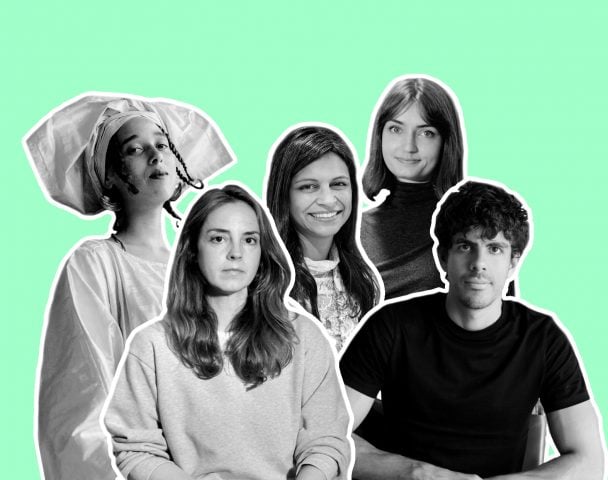Art Industry News is a daily digest of the most consequential developments coming out of the art world and art market. Here’s what you need to know on this Monday, January 4.
NEED-TO-READ
Artist Known for Defacing Art Basel Banana Settles With Trump – Rod Webber, the publicity-seeking prankster performance artist best known for scrawling the words “Epstein Didn’t Kill Himself” across Maurizio Cattelan’s viral banana installation at Art Basel Miami Beach in 2019, has reached a $20,000 settlement with the Trump campaign over a very different intervention. Webber was allegedly thrown “head first” into a table by a Trump campaign staffer when he tried to ask the then-presidential candidate a question during a New Hampshire campaign event in 2015. (Business Insider)
India’s Louis Kahn-Designed Buildings Face Demolition – Plans to demolish the Indian Institute of Management in Ahmedabad are on hold as the World Monuments Fund, among other heritage organizations, call on the institute’s administration to reconsider. The buildings designed by one of America’s most famed architects had, they say, considerable influence on “modern development of Indian higher education.” The institute maintains that the dormitories are unlivable as slabs are falling off the roof, among other structural issues. (New York Times)
Nashville Gallery Owner Vows to Rebuild – The owner of an art gallery in Nashville that was heavily damaged by the Christmas Day blast has vowed to rebuild and reopen. Ashley Bergeron Segroves, the founder of the Studio 208, says the “lively” downtown area now feels like a “war zone.” But in a statement on her gallery’s website, she noted that she felt fortunate—she lives behind the gallery and emerged unscathed. While she lost one major work, by local artist Kristin Llamas, “the rest of our collection survived, even after many pieces were thrown across the room.” (Fox News)
The Architectural Paradox of Berlin’s Humboldt Forum – The €633 million building in Berlin is controversial from most angles, but even based on its architecture alone, there are plenty of issues. Top of the list: the building lies on the rubble of the East German Palast der Republik, “a museum in itself,” laments FT‘s architecture critic Edwin Heathcote. The former East German parliament building was destroyed after German reunification under the pretense of asbestos (similar buildings had the toxin removed without being razed). The new palace “now sits at the dead center of Berlin and has created exactly that: a dead center.” (Financial Times)
ART MARKET
Congress Due to Apply New Regulations to Antiquities Market – The National Defense Authorization Act, which the US Congress passed on Friday by overriding President Trump’s veto, has some art trade-relevant material in the fine print. The sprawling bill contains a move to broaden the 1970 Bank Secrecy Act, which increased federal scrutiny of financial transactions, to include the trade of ancient artifacts. (NYT)
National Gallery Adds Works by Black Artists – The National Gallery of Art in Washington, DC, has acquired 40 works from the Souls Grown Deep Foundation. The purchase, which was three years in the making, adds examples by 21 Black painters, quilters, and sculptors to the museum’s collection, including works by Lonnie Holley, Mary Lee Bendolph, and Thornton Dial. (NYT)
COMINGS & GOINGS
Another Monolith Is Here – Oh, I’m sorry, you thought we could leave monolith mania behind in 2020? No such luck. Yet another silvery metal column—what is it now, the fifth?—has joined the fray, materializing near Salisbury in Wiltshire, UK, on New Year’s Day. It was first discovered by a dog walker and, before long, began attracting attention on social media. (The Art Newspaper)
Director Named for Saudi Arabia’s National Museum – Laila Alfaddagh has been tapped to lead Saudi Arabia’s National Museum. From 2010 to 2017, she served as secretary of the King Abdul Aziz Center for World Culture. (Artforum)
Indigenous Museum Leader Marshall McKay Dies – The Northern California Indigenous leader of Pomo-Wintun heritage, who served as the first Indigenous chairman on the board of the Autry Museum of the American West in Los Angeles, died at 68 due to complications from COVID-19. A founding member of the Native Arts and Cultures Foundation, McKay was described by the Autry’s director as “one of the five—maybe even three—significant Native leaders in the late 20th century and early 21st century.” (Los Angeles Times)
FOR ART’S SAKE
Chris Ofili on Philip Guston – The British artist—no stranger to inciting controversy—penned an essay on Philip Guston’s 1969 painting City Limits, which depicts three hooded Klansmen riding in a car. “Somehow, the sun never sets in this painting,” Ofili writes, “but also, no matter how long I stare at the horizon, the sun never rises to shed light on the dark slots of the eyeholes and windows.” (Artforum)
Art Enters Penn Station – Penn Station has long been the thorn in the side of many New Yorkers—a necessary evil to get where one needs to go. But as part of a long-in-the-works overhaul, the new Moynihan Train Hall is welcoming permanent installations by such celebrated artists as Kehinde Wiley, Stan Douglas, and the duo Elmgreen & Dragset. The New York Times has a first look. (New York Times)
Ancient “Fast Food” Counter Unearthed in Pompeii – Archeologists have found what they call an “eatery” at the ancient site of Pompeii in Italy. The ancient-world equivalent to a fast food restaurant included a multi-sided food counter that served up hot fare. The eatery’s frescos likely advertised food that was available to consume inside. (CBS News)
